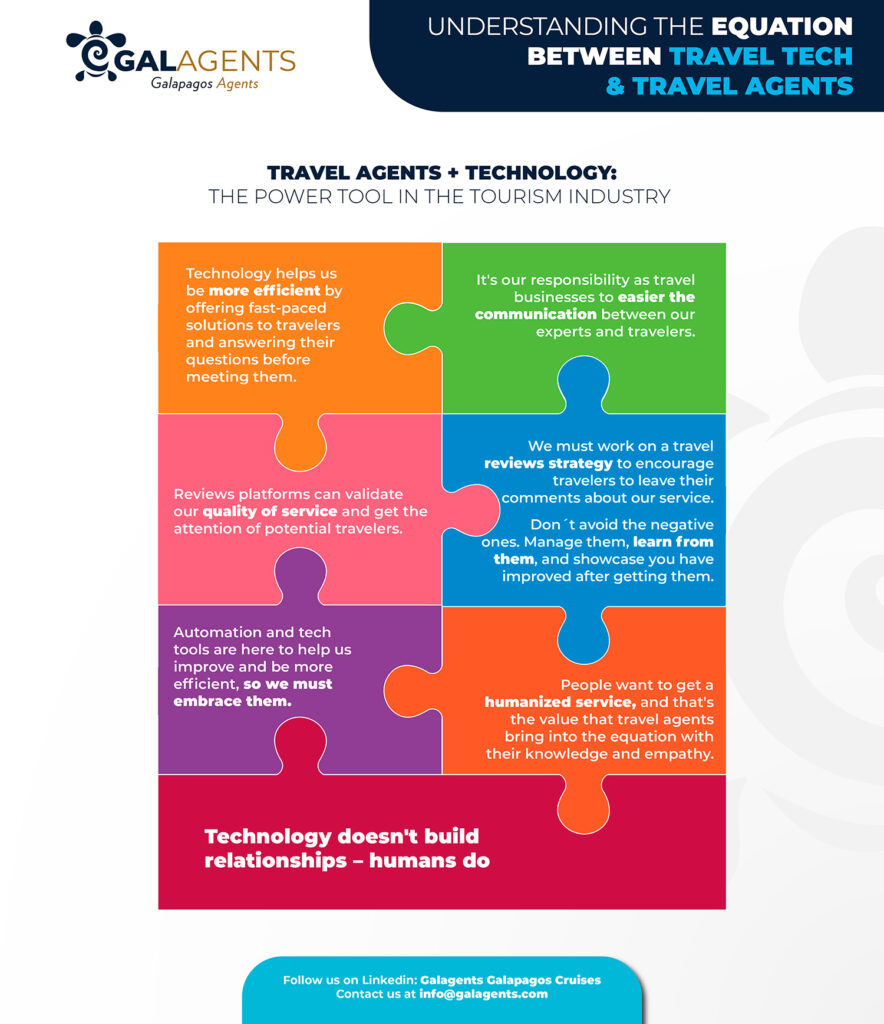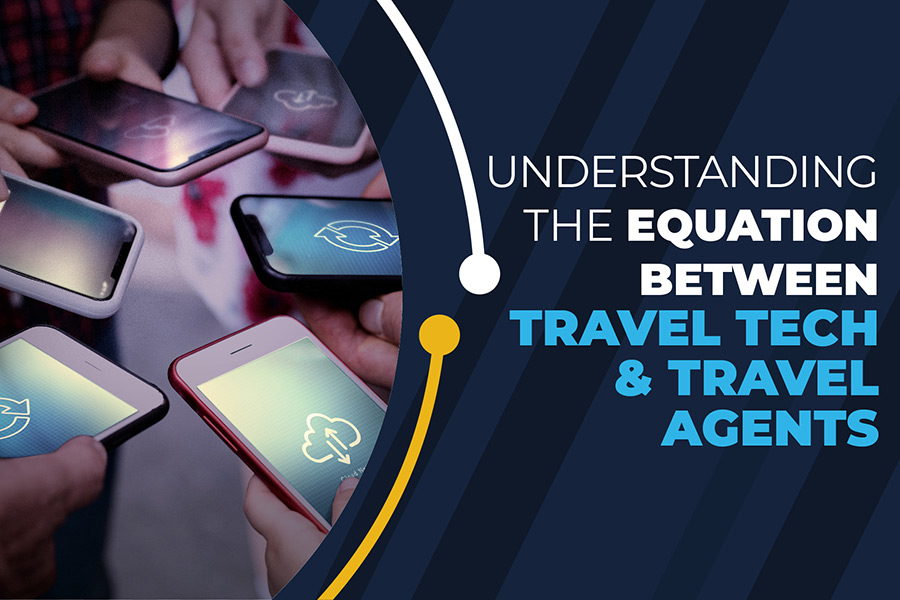Since the industrial revolutions, we’ve been afraid that machines will replace us in the working environment. But what technology has done is boost our productivity and enhance our efficiency.
Thanks to the pandemic, the fear has appeared or exacerbated again with the digital lift we all live. Indeed, we’ve heard about this concern within the tourism industry, mainly due to the rise of OTAs and travel apps.
Yet, is that possible to replace people in a service-driven industry such as tourism? Continue reading, and you’ll get the answer to that question.
Demystifying the technology in the travel industry
Thanks to the advancement of technology, anybody can now look for and book their next vacation online 24/7 with no human involvement. However, according to Peter Greenberg, CBS News travel correspondent, “travel agents still offer the one thing the internet can’t: creativity (…) The web still doesn’t think creatively; it only thinks in a linear way” (travelmarketreport.com)

That could be why big airlines and OTAs with massive IT teams ensure that everyone who visits their websites has a solid connection and a fantastic UI/UX. Yet, they have very few people to assist distressed consumers when they need it.
We can spend countless hours searching how to talk with one person or many hours waiting in a queue until we reach someone on the phone or a chat. Does it sound frustrating to you?
Can technology minimize travelers’ distress in a crisis?
During the pandemic, it was revealed the importance of having the support of people aside from technology.
Nowadays, it’s easy for everybody to explore the web for vacation spots and unique travel packages, book them, and compare travel and lodging costs by touching an app.
However, through the early stage of COVID-19, with lockdowns and complicated travel restrictions, many travelers suffered to rearrange, cancel, or get a reimbursement, mainly the ones that self-organized their trips.
At that time, big OTAs and airlines were pledging patience from users while their support headlines or systems collapsed, adding another layer of stress to travelers.

As Travel, Technology & Solutions claims, “nobody wants to write an email to the support center and wait for a response during a crisis. No way, no how! People want to speak with someone, ask all of their questions, and then cancel or exchange their reservations.”
This is precisely where the value of travel agents arose. Travel agents supported travelers during the difficult period of the pandemic by offering them solutions to their travel issues.
The value proposition of travel agents
Without a doubt, tech in the travel industry has made our life easier. We’re not even close to how it was booking a trip 15 -20 years ago or getting info about a destination.
Although the industry and traveler became more specialized, the travel industry evolved to be more experiential-based than destination-driven.
Wendy Perrin, travel advocate for TripAdvisor, claims that “sophisticated travelers still very much depend on human travel agents.” (travelmarketreport.com)
Indeed, no technology on the planet can ever replace the value of the human touch. Computers and analytics can provide a lot of trending data, but it is up to the travel manager or agent to use that data to tailor each client’s trip.

As Susan Black, chief commercial officer for CIE Tours, said at the USTOA Travel Industry Trends & Insights Panel, “we have all this technology, but we need someone to help with this technology (…) there’s something about visiting a destination for the first time – you want to make sure you get it right.” Thus, only an expert can help put together all the information for doing that. (travelagentcentral.com)
All of this reminds us why planning a trip with a travel agency is more convenient than ever before.
Travel Agents + Technology: The power tool in the tourism industry
We need to understand and even highlight that there is a perfect equation between tech and human touch within our team.
Technology helps us be more efficient, offers travelers solutions in a fast-paced way, and answers their questions before meeting them. Then, it’s our responsibility as travel businesses to facilitate the communication between our experts and travelers.
In fact, Jennifer Wesley, head of travel for Google, advised travel businesses to “be sure the travel content they generate, such as blog posts, photographs, and other destination information, can be easily ‘atomized’ so that it can be visible in a platform like the Trips
App.” In that way, we can take advantage of technology and get the attention of potential travelers searching online. (travelagentcentral.com)

Another piece of advice comes from Perrin (TripAdvisor), who said, “this is a world in which people want to read reviews, and reviews are the best articulation of the value of a travel agent.” Hence, we should work on a review strategy that can validate our quality of service and the human connection we can build with our travelers.
We know it is very tempting to create inbound content, drag leads to a landing page, nurture them, and automate our sales funnel process. It’ll increase our productivity, but remember, humans want to get a humanized service, and that’s the value that travel agents bring into the equation with their knowledge and empathy.
Technology doesn’t build relationships – humans do.
Technology is only a tool. Choose each one for a reason other than merely having the latest bells and whistles. Consider the benefits it will provide to the client. Learn everything you can about the services and tools you use, and take advantage of the relationships that travel agents build with travelers.
Last but not least, did you know that:
- The Henn-na Hotel is the first hotel worldwide fully staffed by robots.
- The Royal Caribbean’s Quantum-class cruises offer guests the “Bionic Bar,” where a robotic bartender arm serves guests drinks and cocktails.

